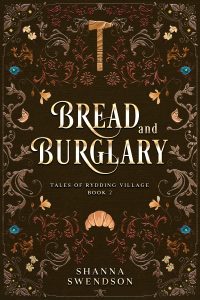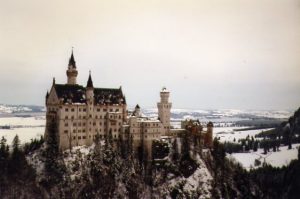movies, fantasy
Revisiting Stardust
Last weekend, I revisited the movie Stardust, which is one of my all-time favorites, as well as the ultimate example of that romantic fantasy road trip structure. I hadn’t watched it since I initially started developing that theory and used it to help map out the structure, so it was interesting to revisit.
First, to address a related issue: I’m aware of the disturbing allegations against the author of the book the movie was based on and don’t want to promote him. I’m not even sure I’d be able to read his books right now without being a bit uncomfortable. But I look at the movie as being its own entity. A movie is a collaborative effort involving hundreds of people. He didn’t write the screenplay, and the screenplay veers fairly significantly from the book in a number of ways. I’ve found that the things I like most in the movie aren’t in the book. The book doesn’t really fit the romantic fantasy road trip that well and is structured differently. So, I’m not letting the author of the book the movie is based on being an alleged creep ruin one of my favorite movies for me.
One thing I noticed was that the protagonist doesn’t meet the love interest/traveling companion until 28 minutes into the movie, which is approximately one-quarter of the way through. That’s pretty common in most of the movies that fit this trope, which is interesting, given that in a romance novel, you generally want the hero and heroine to meet as soon as possible, preferably in the first three chapters — if not the first chapter. These stories come closer to fitting the Hero’s Journey structure, in which the traveling companion/love interest is part of the “new world” the hero enters in the threshold crossing that comes when he takes on the quest. That usually is at about the 25 percent mark. It also fits the “Save the Cat” structure, in which the break into the second act and the meeting of the B-story (romance) character happens at the 25 percent mark, with the hero taking decisive action toward the goal and meeting the love interest at that point.
In this movie, we spend the first quarter of the movie with a bit of a prologue showing our hero’s origins, then we see the life he’s living and the fact that there’s something he wants that we as the audience can tell is not what he needs — he’s in love with a village girl whose only interest in him comes from her knowing she can manipulate him and get what she wants. We also get the setup of the big-picture plot in the magical world, with the king launching the ruby into space and declaring that the prince who finds it will win the crown. Then the ruby knocks a star out of the sky. Tristan finds his opportunity when he spots the falling star and swears to the girl that he’d go into the magical land on the other side of the wall to bring the star to her. His goal is born when she says if he brings her the star before her birthday, she’ll marry him — but his romantic rival is also planning to give her a ring, so if Tristan isn’t there with the star by then, she’ll marry the other guy (a young and unrecognizable Henry Cavill). Then we get the setup for the antagonist, with the witches planning to go after the fallen star, and we get Tristan learning about his history and getting the tools he’ll need to go to the magical land where the mother he’s never known lives.
The movie spends the next quarter on the phase I call “bickering,” as he and the fallen star, who turns out to be the woman Yvaine, travel together. She’s not at all keen on being presented as a gift, but he has a way to get her back home in the sky that he promises to give her if she’ll come with him as proof that he’s retrieved the fallen star. But a lot of this section is taken up by what the antagonists are doing, as the princes continue killing each other until they’re down to two and they both set out to find the ruby. Meanwhile, we see what one of the witches (an absolutely delicious Michelle Pfeiffer in a very different fantasy role from what she played in Ladyhawke) is up to in her quest for the star.
Which brings us to the midpoint, when one of the princes, Tristan, and Yvaine all show up in the trap set by the witch. This is the part I call “Attack,” and when Tristan and Yvaine escape together, we start to get the Bonding portion, where they start to get to know each other and find things they like about each other. In general, the bickering phase is when they’re focused on what they don’t like about each other, then surviving the attack together forces them to look at each other again, so they start to find things they like about each other. And there’s dancing. I’m not sure why there’s dancing at this point in so many stories. I had a friend who used to joke that the dancing in the Disney movies was a metaphor for sex, so she found it hilarious when Aurora says, “I don’t even know your name,” after the “Once Upon a Dream” dance in Sleeping Beauty. In the Hero’s Journey, this is a part called Seizing the Sword or Reward, which is often a bonding time. Dancing together requires trust and synchronization, so it’s a good visual shorthand for a growing bond if the characters can move as one.
I’ve been trying to figure out why I love this movie so much. I think it’s the combo of fantasy, romance, humor, and adventure. The main character has a solid growth arc. It’s a coming of age story — as the narrator tells us, it’s about how a boy becomes a man. There are secret identities and revelations. The villains get their comeuppance. People who’ve been separated are reunited. The cast is pretty astonishing. Even some of the minor roles are played by recognizable people, in some cases because they became famous later. Robert De Niro isn’t the sort of actor you expect to see in this kind of movie, especially not in that kind of role, but he seems to be having an absolute blast.
One fun thing about this viewing is getting to see something like Rydding Village. The village scenes at the beginning and end of the movie were filmed in the village that was the starting point for my mental model of Rydding. Once I started writing, I added, subtracted, rearranged, and changed elements, but my starting point was this village in the Cotswolds. I watched a lot of videos from people walking through this village to set the imagery in my mind, and it’s fun to see the village dressed for a different time period. Apparently, this village is often used for films, and years ago a film company paid for the village to get a central TV antenna on a nearby hill and underground cable from it to all the houses so there wouldn’t be any TV antennas in the town that they’d have to take down. Just about all they have to do to make it serve for anything from the 1600s through the Victorian era is dump dirt over the paved streets, change out the signs in shop windows, and add whatever set dressing they need for the story.
I have one personal connection to this movie. They based a lot of the look on the illustrations in the original illustrated version of the book, painted by Charles Vess. He was the artist guest of honor at the local science fiction convention back in Texas a bit more than ten years ago, and as the Mac expert on the convention staff, I helped him set up his new MacBook and get it ready for him to do his presentation. He gave me the chocolate from his guest gift basket, and I have a signed print of a painting he did for the convention. When I have a real office again, I’m going to get it framed to hang in there.

 It’s a release day birthday for me. Bread and Burglary goes on sale today as an e-book. The paperback should be on sale at Amazon tomorrow (August 8), and it may take a little time to get picked up by other systems. Amazon changed their way of handling paperbacks since my last book, so my usual timing for setting up the paperback so it would come out at the same time as the e-book turned out to be off. I don’t currently have any plans for audio. That’s beyond my budget right now, so the series needs to either sell well enough for me to make the kind of money I’d need to invest in audio and show that it would be profitable in audio, or well enough for Audible to see it as a good bet and buy the audio rights.
It’s a release day birthday for me. Bread and Burglary goes on sale today as an e-book. The paperback should be on sale at Amazon tomorrow (August 8), and it may take a little time to get picked up by other systems. Amazon changed their way of handling paperbacks since my last book, so my usual timing for setting up the paperback so it would come out at the same time as the e-book turned out to be off. I don’t currently have any plans for audio. That’s beyond my budget right now, so the series needs to either sell well enough for me to make the kind of money I’d need to invest in audio and show that it would be profitable in audio, or well enough for Audible to see it as a good bet and buy the audio rights.
